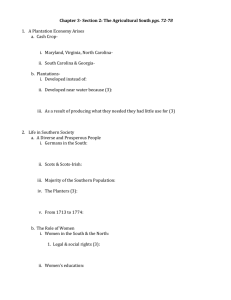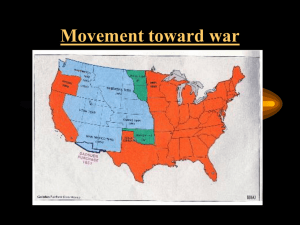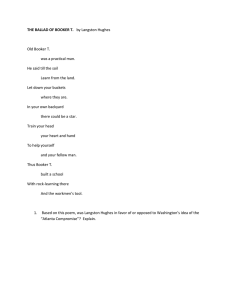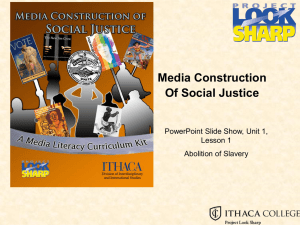UP FROM SLAVERY “Honors” Up "The early years of
advertisement
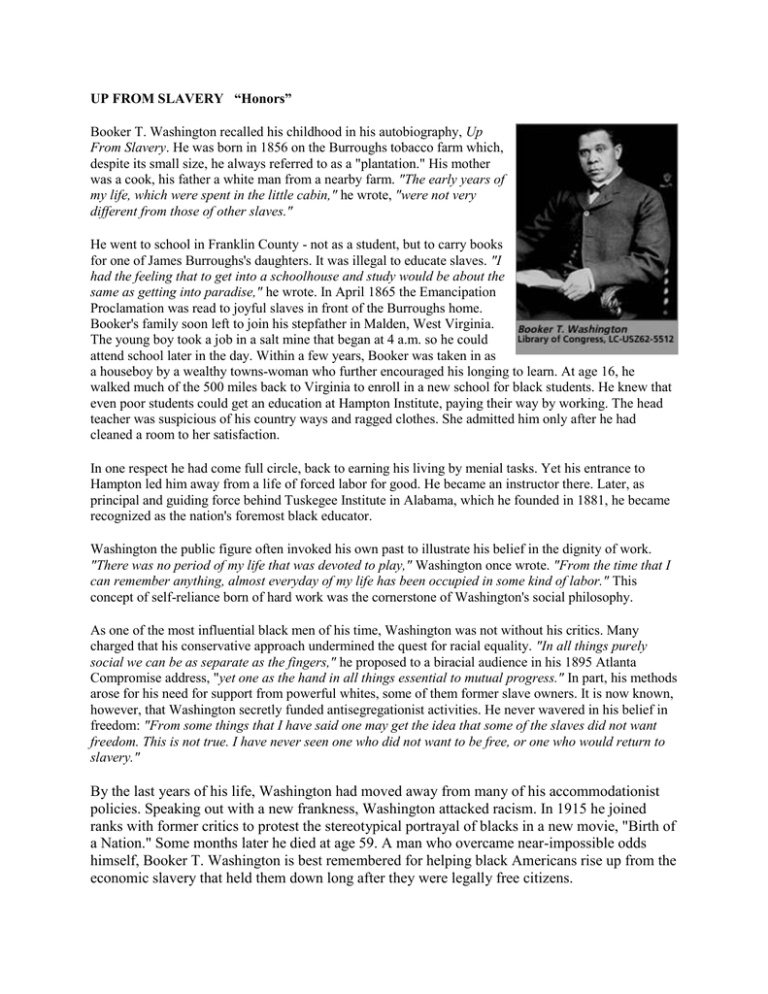
UP FROM SLAVERY “Honors” Booker T. Washington recalled his childhood in his autobiography, Up From Slavery. He was born in 1856 on the Burroughs tobacco farm which, despite its small size, he always referred to as a "plantation." His mother was a cook, his father a white man from a nearby farm. "The early years of my life, which were spent in the little cabin," he wrote, "were not very different from those of other slaves." He went to school in Franklin County - not as a student, but to carry books for one of James Burroughs's daughters. It was illegal to educate slaves. "I had the feeling that to get into a schoolhouse and study would be about the same as getting into paradise," he wrote. In April 1865 the Emancipation Proclamation was read to joyful slaves in front of the Burroughs home. Booker's family soon left to join his stepfather in Malden, West Virginia. The young boy took a job in a salt mine that began at 4 a.m. so he could attend school later in the day. Within a few years, Booker was taken in as a houseboy by a wealthy towns-woman who further encouraged his longing to learn. At age 16, he walked much of the 500 miles back to Virginia to enroll in a new school for black students. He knew that even poor students could get an education at Hampton Institute, paying their way by working. The head teacher was suspicious of his country ways and ragged clothes. She admitted him only after he had cleaned a room to her satisfaction. In one respect he had come full circle, back to earning his living by menial tasks. Yet his entrance to Hampton led him away from a life of forced labor for good. He became an instructor there. Later, as principal and guiding force behind Tuskegee Institute in Alabama, which he founded in 1881, he became recognized as the nation's foremost black educator. Washington the public figure often invoked his own past to illustrate his belief in the dignity of work. "There was no period of my life that was devoted to play," Washington once wrote. "From the time that I can remember anything, almost everyday of my life has been occupied in some kind of labor." This concept of self-reliance born of hard work was the cornerstone of Washington's social philosophy. As one of the most influential black men of his time, Washington was not without his critics. Many charged that his conservative approach undermined the quest for racial equality. "In all things purely social we can be as separate as the fingers," he proposed to a biracial audience in his 1895 Atlanta Compromise address, "yet one as the hand in all things essential to mutual progress." In part, his methods arose for his need for support from powerful whites, some of them former slave owners. It is now known, however, that Washington secretly funded antisegregationist activities. He never wavered in his belief in freedom: "From some things that I have said one may get the idea that some of the slaves did not want freedom. This is not true. I have never seen one who did not want to be free, or one who would return to slavery." By the last years of his life, Washington had moved away from many of his accommodationist policies. Speaking out with a new frankness, Washington attacked racism. In 1915 he joined ranks with former critics to protest the stereotypical portrayal of blacks in a new movie, "Birth of a Nation." Some months later he died at age 59. A man who overcame near-impossible odds himself, Booker T. Washington is best remembered for helping black Americans rise up from the economic slavery that held them down long after they were legally free citizens.
